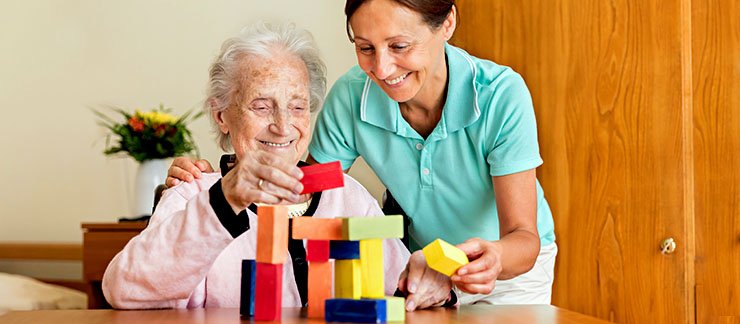Dementia is a progressive neurological condition that disrupts memory, thinking, and behavior, affecting how seniors manage everyday activities. Simple tasks like bathing, dressing, or eating can become confusing or overwhelming as cognitive abilities decline. Families often struggle to maintain safety and structure without proper guidance. For families seeking professional help, a dementia care service can provide personalized support to preserve comfort and dignity in daily routines. Understanding these changes allows caregivers to adapt effectively. Let’s explore how dementia impacts daily living and how structured care promotes independence.
Dementia and Its Symptoms
Dementia is not a single disease but a collective term for conditions such as Alzheimer’s, vascular dementia, and Lewy body dementia. These conditions affect brain function, resulting in memory loss, confusion, and poor judgment. Seniors may find it difficult to recall familiar people, follow conversations, or manage tasks they once performed easily. Emotional changes often accompany cognitive decline, including irritability, withdrawal, or depression. These symptoms interfere with consistent routines and can make daily living unpredictable. Recognizing these signs early helps caregivers provide stability and appropriate support for loved ones.
Daily Living Activities Affected by Dementia
Personal Care and Hygiene
Maintaining personal hygiene becomes a challenge as dementia progresses. Seniors may forget the sequence of bathing, brushing teeth, or grooming. They might resist assistance due to fear, confusion, or embarrassment. These reactions often frustrate caregivers but stem from cognitive decline. To ease discomfort, caregivers can use visual prompts, maintain a calm tone, and simplify steps. Preparing clothing in order or using adaptive items can promote independence. Establishing a routine and ensuring privacy can make daily care more manageable and less stressful for both the senior and the caregiver.
Nutrition and Mealtime Habits
Dementia often disrupts eating habits, leading to weight loss, malnutrition, or dehydration. Seniors might forget to eat, lose interest in food, or struggle with utensils. Some may develop new food preferences or refuse meals altogether. Caregivers can support better nutrition by creating a peaceful dining environment, offering smaller portions, and serving finger foods if needed. Using adaptive utensils and maintaining regular meal schedules encourage consistency. Monitoring hydration and introducing colorful, familiar foods help stimulate appetite and ensure seniors receive proper nourishment throughout the day.
Mobility and Safety
Mobility challenges increase as dementia affects coordination and spatial awareness. Seniors may become unsteady, forget how to navigate familiar spaces, or wander aimlessly. These behaviors raise the risk of falls and injuries. Caregivers can promote safety by installing grab bars, removing clutter, and improving lighting. Labeling rooms or pathways helps reduce confusion. Encouraging light physical activity under supervision supports flexibility and circulation. A secure, well-organized environment not only reduces danger but also gives seniors confidence to move around safely and maintain a degree of independence in daily living.
The Emotional and Social Impact
Dementia takes an emotional toll that extends beyond memory loss. Seniors often experience loneliness or frustration as communication becomes harder. They might withdraw from social activities or feel anxious around unfamiliar situations. Maintaining emotional balance requires patience and connection. Engaging in activities like music therapy, reminiscing, or gentle exercise can uplift mood. Social interaction, even in small doses, strengthens cognitive function and reduces isolation. Family involvement, empathy, and reassurance foster trust and emotional stability, helping seniors cope better with the daily challenges brought by dementia.
Strategies to Support Daily Routines
Practical caregiving strategies can significantly improve daily living for seniors with dementia:
-
Establish a consistent schedule: Predictable routines lower anxiety and help seniors feel secure.
-
Simplify tasks: Breaking down steps into smaller actions makes activities less confusing.
-
Use visual and verbal cues: Labels, photos, and calm reminders guide understanding.
-
Encourage independence: Allow seniors to complete tasks they can do safely.
-
Incorporate enjoyable activities: Music, crafts, or gentle exercise spark engagement.
-
Create a safe environment: Remove hazards, improve lighting, and add supportive aids.
-
Seek professional guidance: Partnering with dementia care specialists ensures personalized and effective support.
These structured methods help preserve dignity while maintaining safety and consistency each day.
Role of Caregivers and Professional Support
Family caregivers play an essential role in providing love and daily assistance, but professional help is often needed as dementia progresses. Trained caregivers understand how to handle confusion, agitation, and memory loss with patience and empathy. They bring consistency to routines and monitor changes in health or behavior. Professional dementia care ensures that seniors receive structured support without compromising independence. Respite care is also invaluable, giving families time to rest and recharge while their loved one continues receiving attentive and compassionate care from qualified professionals.
Conclusion
Dementia reshapes every aspect of a senior’s daily life—from hygiene and nutrition to emotional well-being and social interaction. Each stage brings new challenges, but structured care and understanding can make a meaningful difference. Establishing familiar routines, maintaining communication, and creating safe spaces promote stability and dignity. Families who seek early guidance and professional dementia care services help their loved ones live comfortably and confidently. With compassion, planning, and consistent support, seniors can continue to experience joy and connection even as memory and cognition decline.
FAQs
1. What daily activities are most affected by dementia?
Personal care, eating, mobility, and communication are commonly affected as cognitive and physical abilities decline.
2. How can caregivers make routines easier for dementia patients?
Consistency, simplified steps, calm communication, and visual cues make daily tasks more manageable and reduce confusion.
3. Why is mealtime challenging for seniors with dementia?
Dementia can affect appetite, coordination, and focus, causing seniors to forget meals or struggle using utensils.
4. What role does professional dementia care play?
Professional caregivers provide structured, compassionate assistance, ensuring seniors remain safe, comfortable, and emotionally supported.
5. How can families maintain emotional connection with loved ones?
Regular visits, familiar activities, music, and reassurance help maintain emotional bonds and reduce feelings of isolation.







